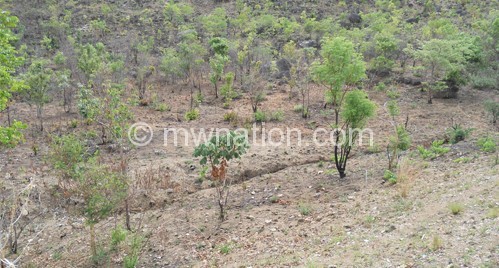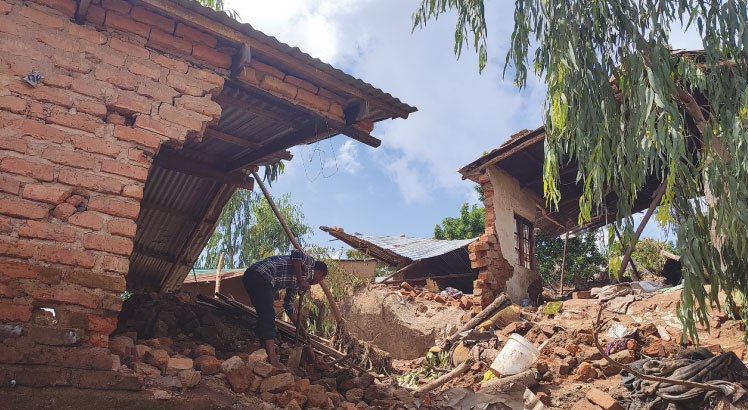Deforestation: Threat to women, children
As dawn breaks, Enala Nkhata, from Mposa Village in Zomba, straps her two-year old on her back. With a bundle of strings in her hand, she heads for a natural forest about 10 kilometres away from the village. The strings are for tying pieces of firewood.
“I’ve been covering this distance since the depletion of a natural forest that was close to our village,” explains Nkhata who uses fuelwood for cooking every day.

Across the globe, deforestation and the resultant firewood shortage continues to affect millions of people, especially women and children who bear the responsibility of gathering firewood and cooking.
With no shoes on their feet, many women and children cover countless kilometres in search of firewood and water, which is mostly found in environments dangerous to them.
When forests are cut down, rivers dry up or get polluted, and soil fertility is reduced drastically.
Continued tree cutting will result in less firewood, and rivers and streams will dry up, leading to declining food production.
Nkhata says that depletion of natural trees and the shortage of firewood have affected her life. Her husband detests bath.
“When we had plenty of trees, I could cook three times a day without complaining about firewood or the cost of charcoal. Today, I cook once a day—at lunch—and keep some of the food for dinner,” says Nkhata.
What worries her, she says, is that there is no sign that things will get better since there are no programmes in the area aimed at replenishing the trees.
In many cases, men are more likely to be involved in extracting timber and non-timber forest products for commercial purposes, but play the least role in replenishing them.
Lake Chilwa Basin Climate Change Adaptation Programme (LCBCCAP) plans to facilitate and strengthen the capacity of local and district institutions dealing with environment and natural resources management to fight climate change.
LCBCCAP is a five-year programme jointly implemented by Leadership for Environment and Development Southern and Eastern Africa (Lead-SEA) based at Chancellor College, World Fish Centre (WFC) and Forestry Research Institute of Malawi (Frim).
LCBCCAP programme manager, Welton Phalira, says with a NOK35 million (about K830 million) grant the organisation received from the Norwegian Government, the programme will also support partner institutions with resources to enhance their capacity to deliver essential services to communities so as to enhance their resilience and adaptation to climate change.
“The overall goal of the programme is to secure the livelihood of 1.5 million people in the Lake Chilwa Basin and enhance resilience of their natural resource base,” Phalira says.
Targeting Machinga, Phalombe and Zomba districts, the programme will alsopromote mitigation of the effects of climate change through improved forest management and governance.
Group Village Head Chonde of Mulanje wants her subjects to take the lead in alleviating the impact of climate change.
She, however, fears she might be building castles in the air because her people cannot manage to raise seedlings to plant in the depleted forests.
“We wish we could plant a lot of trees this coming rainy season. But the problem is that we don’t have seedlings,” says Chonde.
She, therefore, appeals to government and other organisations to support them with seedlings.





